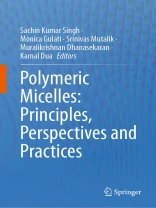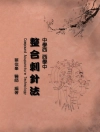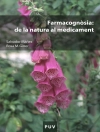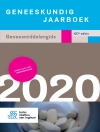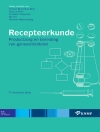This book thoroughly reviews the advancements in design and applications of Polymeric Micelles (PMs) in drug delivery. It provides information on the synthesis of amphiphilic block copolymers and their types, functional chemistry for targeting and sensing, and biomedical applications. The book further provides the possibilities for designing PMs in a range of drug delivery approaches. The book addresses the molecular parameters of amphiphilic block copolymers that are required for functionalizing PMs for drug delivery applications. Additionally, the book presents recent advances in applications of PMs such as co-delivery, sensing, theranostics, delivery of nucleic acids, and proteins. Towards the end, it discusses different physico-chemical strategies to enhance the stability and drug retention of polymeric micelles and reviews the preclinical and clinical toxicity and immunogenicity-related aspects of polymeric micelles. This book is an invaluable source for academics, research, and industry professionals working in the field of polymeric micelles and drug delivery.
表中的内容
1. Synthesis, self-assembly and functional chemistry of Amphiphilic block copolymers.- 2. Advances in polymer optimisation for enhanced drug delivery.- 3. Dynamics of Micelle Formation.- 4. Types of Polymeric Micelles for Controlled Drug Release.- 5. Drug Solubilization and Drug Release from Polymeric Micelles.- 6. Physical and Analytical Techniques used for the Characterization of Polymeric Micelles.- 7.Stimuli-sensitive polymeric micelles for biomedical applications.- 8.Nucleic acid-based micellar therapy for the treatment of different diseases.- 9. Polymeric micelles in the delivery of therapeutic phytoconstituents.- 10. Diagnostic applications of surface-engineered polymeric micelles.- 11. Ligand conjugated polymeric micelles for targeted delivery of drug payloads in cancer therapy.- 12. Polymeric Micelles in the Delivery of Proteins.- 13. Regulatory aspects for polymeric micelles.- 14. Toxicological and regulatory challenges in design and development of polymeric micelles.- 15. Stability of polymeric micelles and their regulatory status.
关于作者
Dr. Sachin Kumar Singh is a Professor at the School of Pharmaceutical Sciences, Lovely Professional University, India. He holds his Masters of Pharmacy in Pharmaceutical Analysis from J.S.S. College of Pharmacy, Ooty, Tamil Nadu, India, and holds Ph D degree in Pharmaceutical Sciences from Karpagam University, Coimbatore, India. Dr Singh is also a visiting Professor at Australian Research Centre in Complementary and Integrative Medicine (ARCCIM), Faculty of Health, UTS, Australia. He has completed one DST-SERB-funded project on the development of SNEDDS of Polypeptide-k for the treatment of diabetes mellitus. Dr. Singh has published more than 200 research papers with a cumulative impact of 400 and co-authored 10 book chapters. His core area is improving the oral bioavailability of poorly water-soluble drugs using various formulation approaches, including nanotechnology, complexation, solid dispersion, and liquisolid technology.
Dr. Monica Gulati isthe Registrar and Executive Dean at the School of Pharmaceutical Sciences, Lovely Professional University, India. She has more than 25 years of teaching, industry, research, and administrative experience. Having completed her BPharm., MPharm, and Ph D. from UIPS, Panjab University, Chandigarh, Dr. Gulati served for two years in the R&D department of Panacea Biotec. Shifting later on to academia, she has served for more than 18 years at LPU in various academic and administrative roles. Dr Gulati is also a visiting Professor at Australian Research Centre in Complementary and Integrative Medicine (ARCCIM), Faculty of Health, UTS, Australia. Her research forte is enhancing the bio-performance of drug molecules, phytochemicals and probiotics, metabiotics, and other biotherapeutics using conventional and novel dosage forms, especially in colon targeting. She holds a keen interest in the quality control parameters of delivery systems. She has more than 150 high-impact publications and 15 invited book chapters to her credit. She has been granted four Indian patents and three Australian patents. She is on the Editorial and Review Board of more than 25 journals.
Dr. Srinivas Mutalik is a Professor and Head, Department of Pharmaceutics at Manipal College of Pharmaceutical Sciences, Manipal, India. He has completed Ph D in 2004 from the Manipal Academy of Higher Education and 3 years of postdoctoral studies at the University of Queensland, Australia, and was a visiting researcher at A-Star Institute, Singapore, in 2016. Dr. Mutalik has published more than 175 papers in reputed journals and has 10 patents to his credit. He has presented research findings at various national and international conferences and delivered several guest lectures. He is a Life Member of various professional organizations. Dr. Mutalik’s research interests include developing and evaluating novel drug delivery systems and nanopharmaceuticals.
Dr. Dhanasekaran graduated B. Pharm. in 1992 from Annamalai University and obtained M. Pharm. in 1995, and a Ph D degree in 1999 from Jadavpur University, India. Dr. Dhanasekaran has nearly 30 years of research experience in various synthetic drugs and botanicals, including Indian and Western medicinal plants. While in the Harrison School of Pharmacy, he has worked as a principal investigator of several research projects funded by the Alzheimer’s Association and pharmaceutical companies. Further, he has received several school and University level awards for devoted teaching in Graduate and Pharm. D programs. He has edited 4 books published 102 scientific research articles in peer-reviewed journals, 40 book chapters, and 200 abstracts in national and international meetings. For the last many years, Dr. Dhanasekaran has been working as a reviewer in NIH, Alzheimer’s Association, and for several SCI journals and grants.
Dr. Kamal Dua is a Senior Lecturer in the Discipline of Pharmacy at the Graduate School of Health, University of Technology Sydney (U.T.S.). He has research experience of over 12 years working in the field of drug delivery targeting inflammatory diseases. Dr. Dua is also a Senior Research Fellow, Australian Research Centre in Complementary and Integrative Medicine (ARCCIM) and Node Leader of Drug Delivery Research in the Centre for Inflammation at Centenary Institute/UTS where the targets identified from the research projects are pursued to develop novel formulations as the first step towards translation into clinics. Dr. Dua researches two complementary areas; drug delivery and immunology, specifically addressing how these disciplines can advance one another, helping the community live longer and healthier. His extensive publication record evidences this in reputed journals. Dr. Dua’s research interests focus on harnessing the pharmaceutical potential of modulating critical regulators such as Interleukins and micro RNAs and developing newand effective drug delivery formulations to manage inflammation in chronic airway diseases and cancer..
